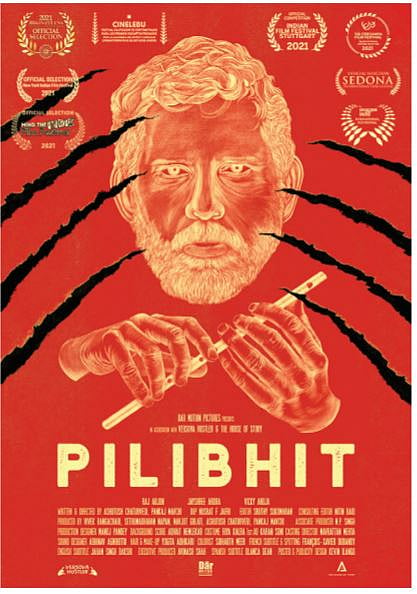Pilibhit: A sordid tale of human ‘sacrifice’
Inspired by real events, film gives an insight into poverty-stricken villages where people were forced to sacrifice their elderly to the forest tigers, in hope of getting some compensation from govt

Pilibhit, a short film by debutant filmmakers Ashutosh Chaturvedi and Pankaj Mavchi, has already made its mark globally after being selected at the Cinelebu International Film Festival, New York Indian Film Festival, Indian Film Festival of Melbourne, Cerdanya Film Festival, among many more.
The film explores the many colours of life in the villages near the Pilibhit Tiger Reserve. Inspired by real events, the film gives an insight into the lives of impoverished villagers who sacrifice their elderly to the forest tigers in the hope of getting some compensation from the government.
Chaturvedi says, “It was on 4th July 2017, that we first read about these happenings in Pilibhit. We realised it was a powerful hard-hitting story that needed to be told.” And so, in subsequent trips to Pilibhit, the filmmaker-duo discovered the true colour of life in the village.
However, Mavchi says that their intent was never to tell a sensational story or shock people with Pilibhit’s reality. Instead, they wanted to explore what made people take a decision as difficult as this. “There’s a lot of talent and natural beauty over there, but the crippling poverty has left people in serious dilemmas,” he says.

The duo went on to investigate the “behind the scenes” of the happenings, and found out that the region, home to the best flute-makers in the country, has been grappling with unemployment and poverty. “The condition of these flute-makers was pathetic, because the one railway line that connected them to the source of their raw material, Assam, has been dysfunctional for years,” says Chaturvedi.
They say that Pilibhit opened their eyes to UP’s “Ganga-Jamuni tehzeeb”, with Muslim artisans making these flutes that they lovingly call “Kanha ki Bansuri”. This harmony between the people of the village became the reason that the protagonists of the short film inadvertently became Muslim flute artisans, Siraj and Bilal.
The duo says that with Siraj’s character, they wanted to show the transition of morality within a mere 20 minutes. Chaturvedi says, “Siraj was a righteous person who took solace in his art. By the end of the film, his character is drained of all goodness, and there’s a symbolic death of music and art.”
Mavchi acknowledges that they were only successful in showing everything they had envisioned because of their Director of Photography, Nusrat Jafri. “We did not want to underline everything happening in the film, so we used subtle elements,” he says. For instance, the film starts with red as the main colour gradient, and ends with white, to symbolise the draining of life.
The film also used a different colour palette to outline each character’s journey, and foreshadow certain events. They applied the same rule to the music as well, and recorded an acoustic and ‘minimalist’ original track on flute.
But the shooting of the short film posed a bucket of challenges for the duo. Chaturvedi says that the film had to be shot in two days. Add to that, the shooting happened in peak winter and there would be no light after 5 pm.
“We also decided to shoot everything authentically, and so we had to run around to different locations in the village with our equipment loaded,” recalls Chaturvedi. Mavchi adds that they had to shoot the midnight scene, extremely early in the morning, because being first-time filmmakers, they couldn’t afford a third shoot day.
Chaturvedi smiles as he recalls how courteous and helpful the villagers were to their whole crew. This happened to be the first film to be shot in the region, and crowds thronged to the sets to witness the movie madness.
“Pilibhit was a launchpad that we gifted ourselves,” says Chaturvedi. Mavchi agrees and chimes in, “Everything was a discovery for us.” They say that their film being selected for multiple international film festivals, is the best kind of validation that they could have received, and also the best pushing force. They’ve already finished writing their first feature film, and they say it’s all because of the love that Pilibhit has received.
Follow us on: Facebook, Twitter, Google News, Instagram
Join our official telegram channel (@nationalherald) and stay updated with the latest headlines